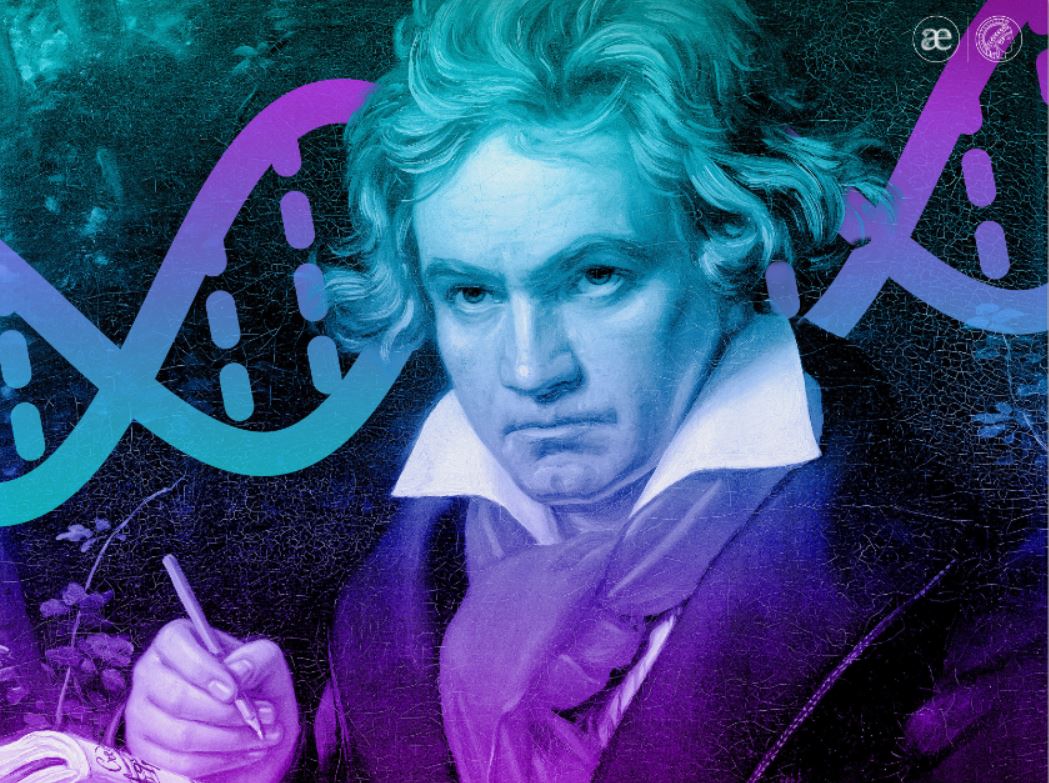Can musicality be read from the genes?
An international research team has analyzed DNA sequences from Beethoven's hair strands in search of genetic clues to musicality.

The team, involving the Max Planck Institutes for Empirical Aesthetics (MPIEA) in Frankfurt am Main and for Psycholinguistics (MPI-PL) in Nijmegen, has calculated an indicator for the genetic predisposition to a certain trait or behaviour, in this case for beat synchronization. The aim was to use the example to show how difficult it is to make genetic predictions for someone who lived over 200 years ago. Interestingly, the composer showed an unremarkable indicator of musicality compared to population samples from the Swedish Karolinska Institute and Vanderbilt University in the US.
According to the team, the large discrepancy between the DNA-based prediction and Beethoven's musical genius is a valuable lesson: it shows that one should be skeptical when someone claims that a genetic test can reliably determine whether a child will be particularly gifted in music or in another area.
Original publication:
Wesseldijk, L. W., Henechowicz, T. L., Baker, D. J., Bignardi, G., Karlsson, R., Gordon, R. L., Mosing, M. A., Ullén, F., & Fisher, S. E. (2024). Notes from Beethoven's Genome. Current Biology, 34(6), R233-R234. https://doi.org/10.1016/j.cub.2024.01.025








